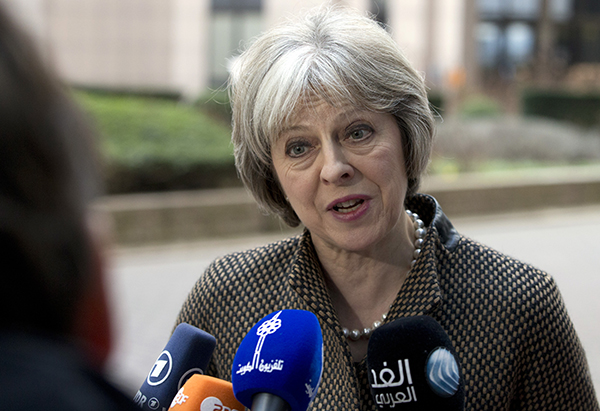
Journalists verbally harassed by demonstrators in London
On January 7, 2019, journalists working near the Parliament building in London were repeatedly verbally harassed by supporters of Brexit, the United Kingdom’s impending withdrawal from the European Union, according to news reports and the journalists’ posts on social media.

CPJ demands release of journalists arrested over documents in Northern Ireland
New York, August 31, 2018–The Committee to Protect Journalists today called on police in the United Kingdom to immediately release producer Trevor Birney and journalist Barry McCaffrey, who were arrested on suspicion of stealing confidential documents today, according to the Belfast Telegraph and other news reports.

CPJ welcomes introduction of UK Sanctions and Anti-Money Laundering Bill
May 24, 2018, London–The Committee to Protect Journalists today welcomed the U.K.’s decision to pass into law legislation that addresses human rights abuses. The Sanctions and Anti-Money Laundering Bill, which yesterday received Royal Assent to be passed into law, includes a “Magnitsky amendment” that empowers the U.K. to apply sanctions against individuals suspected of human…

Expanded surveillance powers could threaten work of journalists in UK
Brussels, May 5, 2017–The Committee to Protect Journalists is alarmed by news reports that the U.K. government wants to push telecommunication companies to introduce real-time surveillance and the removal of encryption. On Thursday, The Register published leaked draft regulations detailing how telecommunications operators would be required to grant real-time access to individuals under warrant within…

UK’s proposed Espionage Act will treat journalists like spies
Journalists in Britain are becoming increasingly alarmed by the government’s apparent determination to prevent them from fulfilling their mission to hold power to account. The latest manifestation of this assault on civil liberties is the so-called Espionage Act. If passed by parliament, it could lead to journalists who obtain leaked information, along with the whistle…

UK’s Section 40 press law would curb independent, investigative journalism
British journalists say the future of independent and investigative journalism in the U.K. is at stake, as a deadline for public consultation on press regulation ends tomorrow. If it is implemented, Section 40 of the Crime and Courts Act 2013 would leave news outlets not signed up to an official press regulator liable for the…
Double Exposure
When it comes to abusive readers’ comments and tweets from Internet trolls, Katherine O’Donnell has heard it all. For years, O’Donnell, who is night editor of the Scottish edition of the U.K.’s The Times, has borne the brunt of personal attacks, including about her gender, from online trolls who take umbrage at articles in her…
Why a Troll Trolls
“Yeah… I went too far,” he said, which by most accounts would be an understatement. Among the Twitter comments this Internet troll posted to or about a female writer and activist were: “Rape her nice ass.” “I will find you.” “The police will do nothing.” The man, who agreed to be interviewed only under a…
